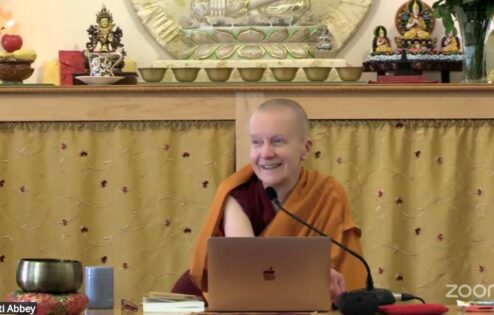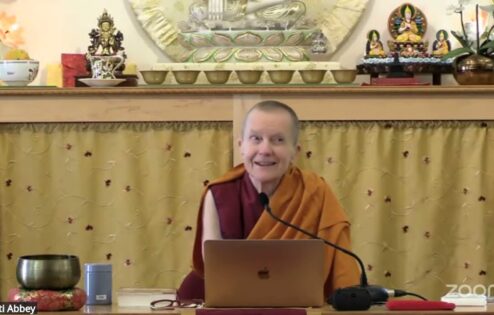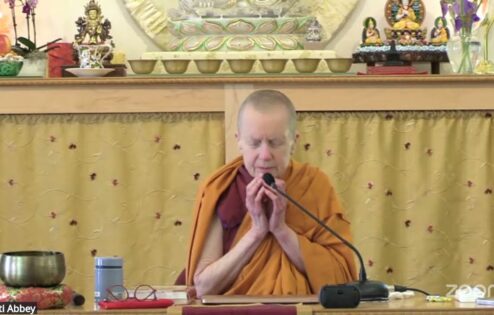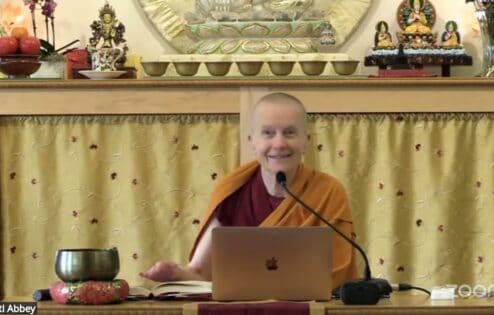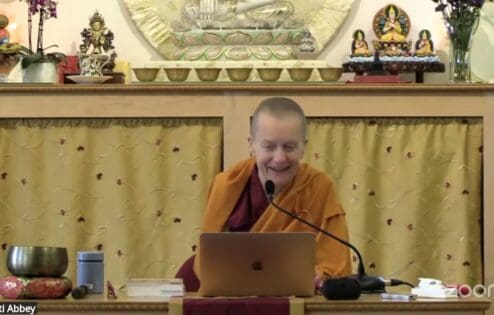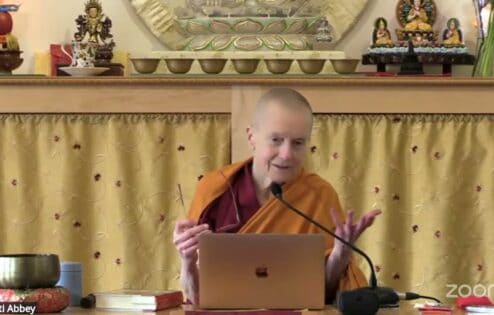Venerable Sangye Khadro
California-born, Venerable Sangye Khadro ordained as a Buddhist nun at Kopan Monastery in 1974 and is a longtime friend and colleague of Abbey founder Venerable Thubten Chodron. She took bhikshuni (full) ordination in 1988. While studying at Nalanda Monastery in France in the 1980s, she helped to start the Dorje Pamo Nunnery, along with Venerable Chodron. Venerable Sangye Khadro has studied with many Buddhist masters including Lama Zopa Rinpoche, Lama Yeshe, His Holiness the Dalai Lama, Geshe Ngawang Dhargyey, and Khensur Jampa Tegchok. At her teachers’ request, she began teaching in 1980 and has since taught in countries around the world, occasionally taking time off for personal retreats. She served as resident teacher in Buddha House, Australia, Amitabha Buddhist Centre in Singapore, and the FPMT centre in Denmark. From 2008-2015, she followed the Masters Program at the Lama Tsong Khapa Institute in Italy. Venerable has authored a number books found here, including the best-selling How to Meditate. She has taught at Sravasti Abbey since 2017 and is now a full-time resident.
Featured Series
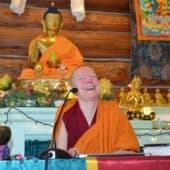
Easy Path to Travel to Omniscience with Venerable Sangye Khadro
Teachings on the stages of the path to awakening by Venerable Sangye Khadro hosted by Thubten Norbu Ling Center in New Mexico, USA.
View Series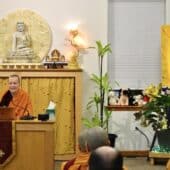
Introduction to Tantra with Venerable Sangye Khadro 2021 and 2023
Teachings on Tantra (Vajrayana), including its relationship with other Buddhist practices, the correct motivation, preparation for practice, and extensive topics covering emptiness. Covers two series from 2021 and 2023.
View Series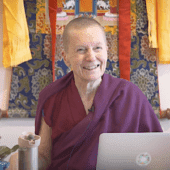
Meditation 101 by Venerable Sangye Khadro (2021)
Teachings by Venerable Sangye Khadro suitable for people encountering both meditation and Buddhism for the first time.
View Series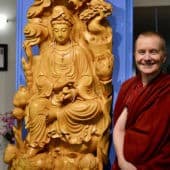
Middle-Length Lamrim with Venerable Sangye Khadro (2023-present)
Ongoing teachings on the Middle-Length Treatise on the Stages of the Path to Enlightenment by Lama Tsongkhapa. Streamed live on the Sravasti Abbey YouTube channel on Thursday mornings at 9 am Pacific Time.
View Series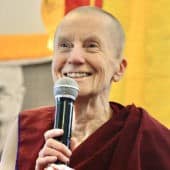
Tenets with Venerable Sangye Khadro (2022)
Weekly teachings on the text "Presentation of Tenets" by Jetsun Chokyi Gyaltsen by Venerable Sangye Khadro.
View SeriesFeatured Posts
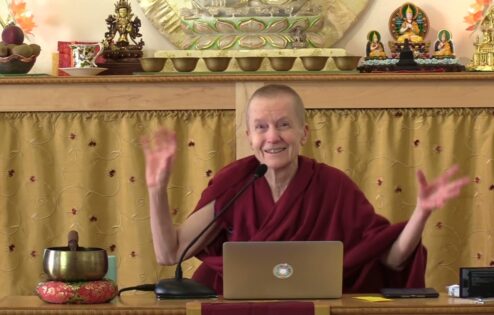
How to Meditate: Advice for daily practice
More antidotes to obstacles and how to support a daily practice.
View Post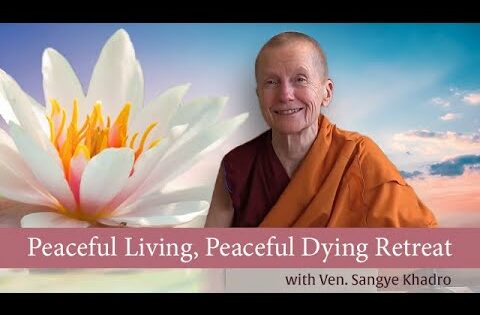
Buddhist perspectives on death
What the Buddha taught about death and the benefits of meditat...
View Post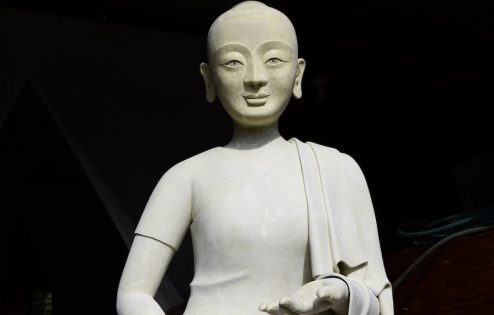
Researching the bhikshuni lineage
Can the bhikshuni ordination be traced back to the time of the...
View PostView Posts
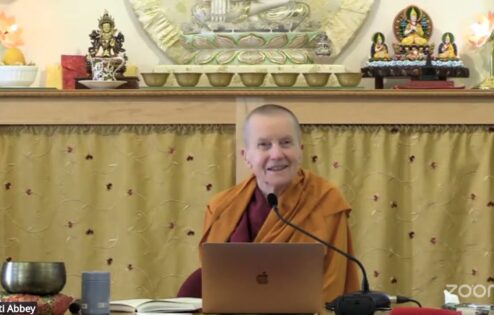
Anger is unjustified on analysis of the basis
Using analysis and reflection to develop patience.
View Post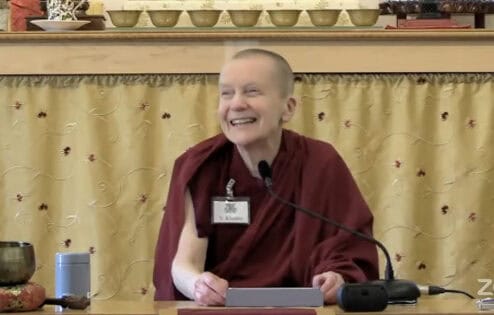
Meditation on the sense of self behind anger
Guided investigation of the "I" that feels anger.
View Post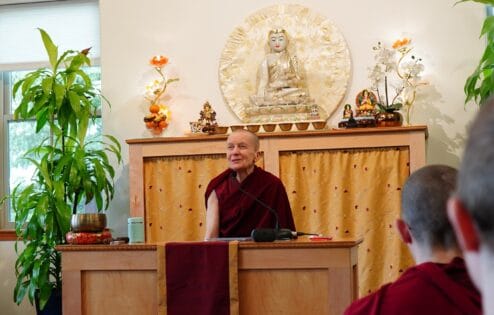
Meditation on how anger distorts our perception of o...
Meditation on how anger affects our view of others.
View Post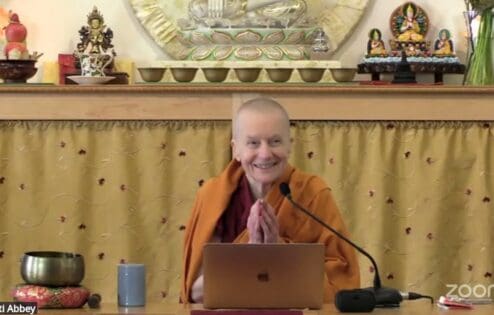
Transforming problems and anger
More ways to transform problems and four steps to face current challenges.
View Post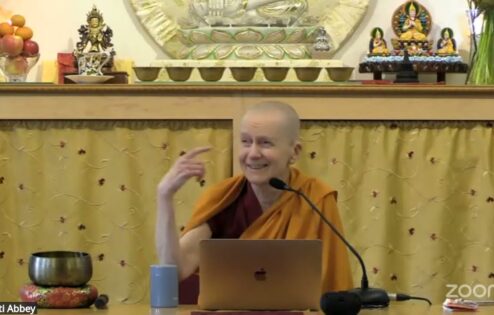
Problems aren’t necessarily bad
How to transform our perspective on problems and practical ways to work with them.
View Post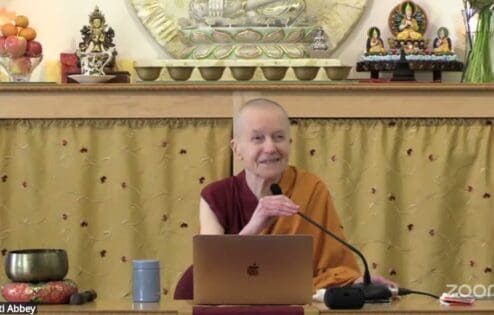
Four truths of the Aryas
The Four Truths of Noble ones, rebirth and reincarnation and Buddhist views on happiness and…
View Post